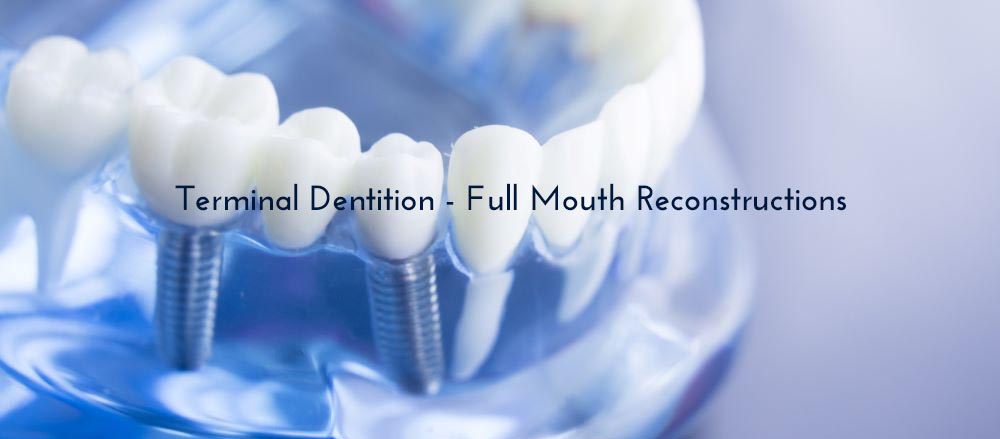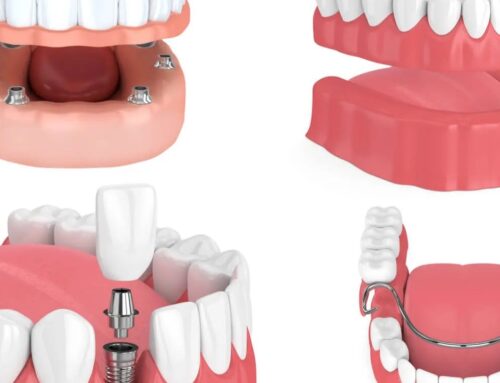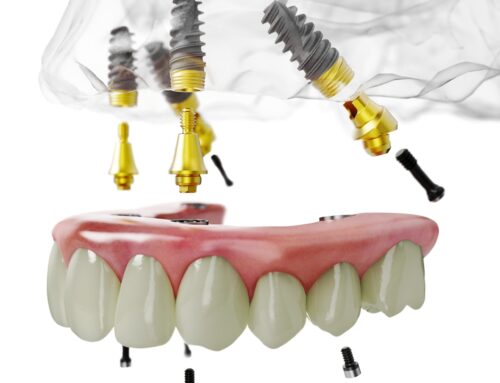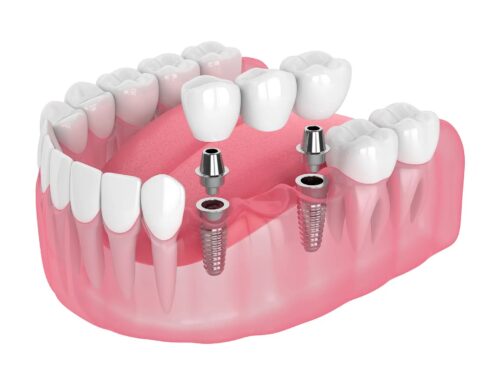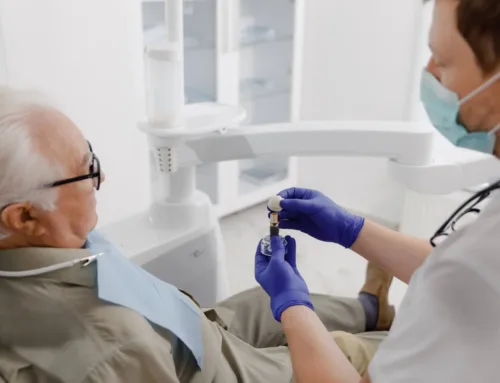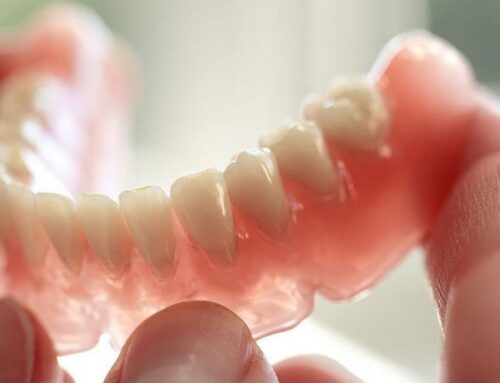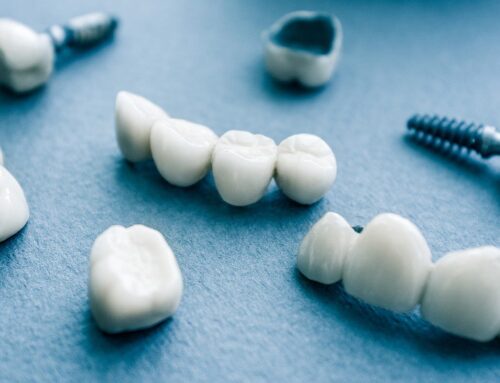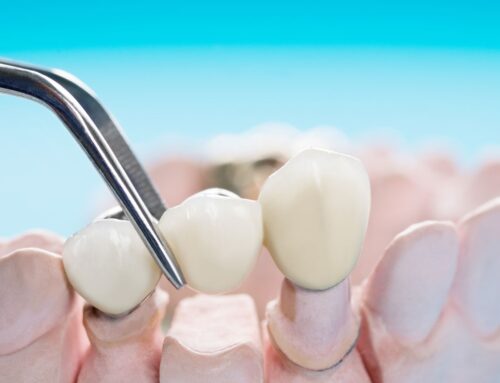Restoring Severe Dental Conditions with Full Mouth Reconstructions
Regular dental checkups and preventive oral care treatments help keep your smile looking great and your teeth as healthy as possible. However, some people experience unfortunate instances where damage to their teeth and mouth is so extreme that a complete restoration of the entire mouth is necessary. What types of situations warrant a full mouth reconstruction, and what is involved in an advanced procedure like this?
It can be easy to take good dental health for granted sometimes. When your teeth are strong and healthy, there’s not much to worry about as long as you keep up with a good dental care routine and visit your dentist on a regular basis. However, if life takes a turn and circumstances unfold that negatively affect the health of your teeth, it’s critical to get the dental care you need to get your mouth as healthy as possible again. In the most severe situations it may even be necessary to perform a total rebuild on the jaw, gums, and teeth in order to provide the optimum outcome and enable the patient to regain proper function of their mouth.
Fortunately, innovative dental treatment methods and techniques allow dentists to perform radical reconstructions for even the most severely damaged mouths. These are referred to as cases of ‘terminal dentition’. Terminal dentition is defined as the condition of the teeth being so damaged or decayed that there is no other viable option for the patient other than to remove all the patient’s natural teeth and replace them with artificial substitutes. So, why do some patients find themselves in need of such a dramatic dental procedure, and what can they expect from the restoration process?
Cases of Damage to the Teeth & Mouth from Accidents or Impacts
There’s no predicting when an accident will occur. While you can certainly take steps to protect your teeth with a mouthguard while you engage in physical activities and sports, you aren’t going to be wearing it around the clock. When you suffer a significant impact to the mouth, it can result in serious damage to the bones, gum tissues, and teeth. Vehicle accidents, trips and falls, and sudden unexpected impacts during sporting activities are all examples where substantial damage to your teeth can occur.
In the event that a situation like this does happen, it’s critical that emergency medical attention is sought out immediately. Georgian Dental offers emergency dental appointments and after-hours visits, so contact us as soon as possible to arrange for an appointment at one of our Barrie or Orillia dental clinic locations.
For serious or life-threatening injuries, proceed directly to the nearest emergency room or dial 911 to have an ambulance and paramedics dispatched to your location.
Cases of Severe Tooth Decay, Gum Disease, and Tooth Loss
Not all cases of terminal dentition are caused by accidents or impacts. Improper or infrequent dental hygiene habits will eventually lead to tooth decay, cavities and gum recession. If left untreated, these conditions can progress to more serious cases of gum disease, also known as periodontitis. This infection of the gums caused by invasive bacteria has many negative health effects, such as the deterioration of the teeth, gums, and even jawbone. Eventually, teeth become loose and may even fall out entirely, while others continue to decay to the point where they may even literally begin to fall apart.
The problems associated with tooth decay and improper dental hygiene can be exacerbated even further by certain lifestyle factors including tobacco use, drug use, excessive alcohol consumption, poor diet, and others.
Whatever the underlying combination of factors that have contributed to tooth decay, gum disease, and tooth loss may be, eventually it’s something that the patient will eventually have to deal with in order to regain and restore the function of their teeth.
What Is Involved in a Full Mouth Reconstruction?
In the event that a full mouth reconstruction is determined to be the best option for the patient to treat their case of terminal dentition, there are several steps that will occur to ensure maximum restoration of the patient’s mouth.
Consultation, Examination, and Treatment Planning – The first step for the patient will be a comprehensive examination and dental consultation. This process usually includes a physical examination, obtaining a current set of x-rays and dental imaging scans, and a detailed discussion with the patient. This is where the dentist will review all the relevant information on the state of health of the patient, along with any influencing factors that must be considered such as current medications, past dental history, or other considerations. Using this information, the dentist can then craft a customized treatment plan along with estimated costs for the unique case of the patient, and if approved, begin scheduling the various steps of the full mouth restoration procedure(s).
Removal of Damaged and Decayed Teeth, Gum Tissue, and Bone Material – Depending on the extent of the damage to the various parts of your mouth, this stage of the restoration procedure will likely include the surgical removal of any excessively damaged or decayed material. Any infected or decayed bone, gum, and tooth material will be extracted, along with any broken bone fragments or areas that are too structurally weak to remain in place.
The reason for this step is to ensure that there is no infected tissue or bone remaining in the mouth that would continue to spread the infection on to the remaining healthy parts of the mouth. This sets the stage for the healthiest and strongest base possible to work with during the rest of the treatment steps.
Grafting of Healthy Bone and Gum Tissue to the Affected Areas – Not all cases of mouth restoration will require both gum and bone grafts, but this will be discussed with you in detail during the initial consultation phase. In those cases where significant amounts of bone or gum tissue must be removed, a graft will be performed to reinforce the affected areas. This provides additional strength and structure within the jawbone and gums, helping to provide the replacement teeth with greater stability. The goal here is to give the patient as much strength and comfort as possible when chewing and speaking.
Fitting the Patient for a Full Set of Replacement Teeth – Once the mouth is prepared to receive the replacement teeth, the patient will be fitted for their dental prosthetics. This may be in the form of a set of top and bottom dentures, or the patient may receive All on Four dental implants as part of the full-mouth replacement procedure. Both options help the patient regain the full use of their mouth, but are very different in how the replacement teeth are attached.
Traditional dentures are adhered to the firm gum tissue of the patient using temporary dental adhesives. These can come in the form of an adhesive strip, a dry adhesive powder, or a malleable adhesive paste. The patient will re-apply these adhesives themselves whenever the grip begins to weaken, or when the dentures are removed for cleaning. Modern dentures are very comfortable to wear, and appear completely natural when in place in the mouth. Over time, most patients will need to have their dentures adjusted and re-fitted by their dentist in order to accommodate the gradual changing of the shape of their gums
Another approach that your dentist may choose is implant-supported dentures. Rather than rely solely on dental adhesives to affix the dental prosthesis, this method uses dental implants to hold the dentures in place. These dental implants are used as physical anchors to which the prostheses are attached. Aside from the main advantage of being a more solid connection, implant-supported dentures also offer the patient less impingement to the tongue than traditional dentures. This makes it more comfortable for eating, drinking, and speaking.
Restoring the Whole Mouth with All-on-4 Dental Implants
Instead of traditional dentures or implant supported dentures, patients may be offered the innovative All-on-4 dental implant procedure to complete their full mouth restoration. Unlike implant-supported dentures which sometimes only utilize two implants, the All-on-4 system uses a set of four dental implants on each of the top and bottom arches. These implants are embedded in precise positions into the jawbone to create an exceptionally stable connection. This provides the patient with the most secure hold between the jaw and the replacement teeth, giving them the greatest possible comfort and confidence with their restored smile.
Preventing Bone Density Loss in Full Mouth Reconstructions
In addition to giving the patient a more stable and secure connection for their replacement teeth, the All-on-4 dental implant procedure also helps prevent the problem of long-term bone density loss. It is able to achieve this thanks to the direct integration of the dental implants into the bone material of the jaw. Doing this helps to mimic how the roots of natural teeth extend deep down into the jawbone. As people go about their daily lives, their natural teeth exert pressure into the bone and surrounding tissues during such activities as eating and chewing. This pressure works to stimulate the natural bone strengthening processes of the human body increasing the density and stability of the jaw. With the implants fused deep down into the jawbone, the same stimulating pressure is applied to these areas, thus creating a similar strengthening effect and preventing the bones from losing density over time.
Restore Your Smile & Get Back the Quality of Life You Deserve
If you are in need of a full mouth restoration, don’t wait any longer to get the necessary help. You are worthy of a great-looking smile and the better quality of life that comes with regaining complete functionality of your mouth. The benefits to your overall well-being and state of health cannot be overstated, and the entire process will be made as simple and painless as possible here at Georgian Dental. Starting with a free, no-obligation consultation ($300 value), we will guide you through each step, ensuring you are fully informed about your specific treatment plan, as well as all the costs associated with your unique case.
It is our ultimate goal to help all our patients achieve the best possible outcomes from their treatments, and get the healthy, beautiful smiles they deserve. Arrange for your appointment today, and we will be glad to help you down the path to a full mouth restoration.
Appointment Request
If you’re interested in any of our procedures, and would like to meet with one of our dentists to discuss options, costs and get additional information, complete this short form and we’ll give you a call to arrange for a no-obligation appointment at our Barrie clinic.
